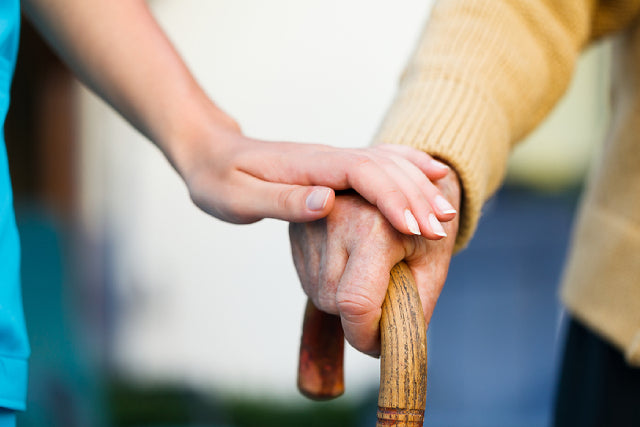
Walking sticks are a classic PMA that has been associated with support and wisdom in many cultures. These tools are much more than just balancing aids; they provide a host of psychological and physical advantages that improve users’ quality of life.
This article explores the many uses of walking sticks, including their psychological effects, different styles, and advice on choosing the best one. It also discusses the physical benefits of walking sticks and their roles in managing chronic conditions.
The physical benefits & purpose of walking sticks
A walking stick’s main purpose is to provide its user with physical support, which improves their stability and balance. Redistributing weight relieves pressure on the back, legs, and knees, which lowers the chance of accidents and falls. This is especially helpful in areas with uneven terrain because there is a greater chance of tripping or slipping.
Walking sticks can play a crucial role in promoting an active lifestyle and facilitating mobility for people recovering from injuries or joint problems, expediting their rehabilitation process.
Walking sticks and chronic conditions
Walking sticks can dramatically enhance the quality of life for individuals with long-term conditions, such as multiple sclerosis, Parkinson’s disease, or arthritis. They provide a sense of independence by making mobility safer and more assured.
Additionally, using a walking stick can lessen the strain on afflicted joints and limbs, which may help with pain and discomfort. This can, therefore, result in a more active lifestyle, which can aid in better managing the symptoms of long-term illnesses.
Types and styles of walking sticks
Different types and styles of walking sticks are available to meet a range of needs and preferences. There are many options, ranging from classic wooden canes to contemporary, foldable metal ones.
Walking sticks with specialised features, like those made for hiking or with a built-in seat, provide extra utility. The walking stick’s comfort and effectiveness can be greatly impacted by the design, which extends from the handle to the tip. Ergonomic handles, for example, can lessen hand strain, and different tip types offer improved traction on varied surfaces.
The psychological benefits of using walking sticks
Walking sticks offer many psychological advantages in addition to their physical ones. They can give users a sense of self-assurance and independence, easing their fear of falling and allowing them to partake in enjoyable hobbies and social activities.
This beneficial psychological effect may play a significant role in reducing the feelings of isolation that people with mobility impairments frequently feel. Additionally, a walking stick’s selection can express a person’s unique style and identity in addition to serving a practical purpose.
How to choose the right walking stick
Choosing the appropriate walking stick requires taking into account a number of variables, such as the user’s height, weight, and the particular requirements imposed by their medical condition.
The length of the stick should enable a small bend in the elbow when held, promoting good gait. The base should offer sufficient support and traction for the user’s usual terrain, and the handle shape should feel natural in the hand. Seeking advice from a healthcare professional can offer significant direction in selecting the optimal option.
Conclusion
With their extensive history and variety of uses, walking sticks serve as more than just aids for people who need physical and visual support; for those who use them, they are symbols of self-reliance and confidence.
There is a walking stick to suit every need, be it managing the difficulties of a chronic condition, recuperating from an injury, or just needing extra stability when walking. Furthermore, the creation of other PMAs, such as mobility scooters for the elderly, highlights the significance of accessibility and inclusiveness. Accepting the walking stick gives users a useful tool as well as a representation of independence and resiliency.
Here at Falcon Mobility, we value our customers’ independence and confidence. With a wide range of PMAs, such as motorised wheelchairs, mobility scooters, rollators, and walking sticks, you can find what you need within your budget range. Head over to our showroom today and let our team assist you!

